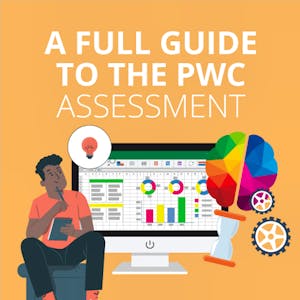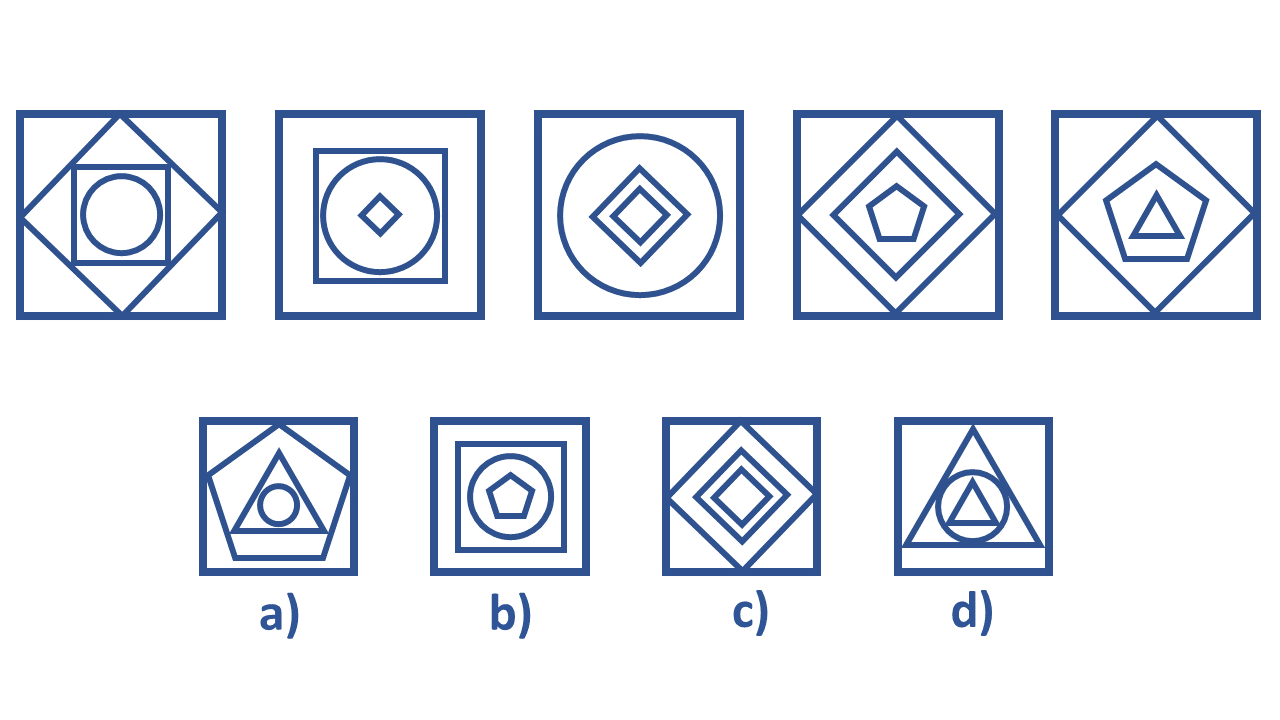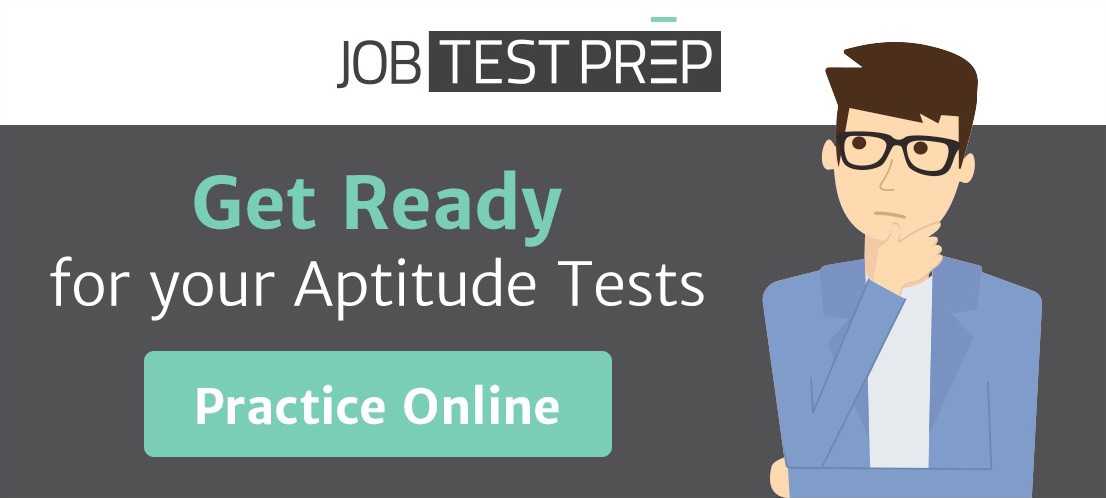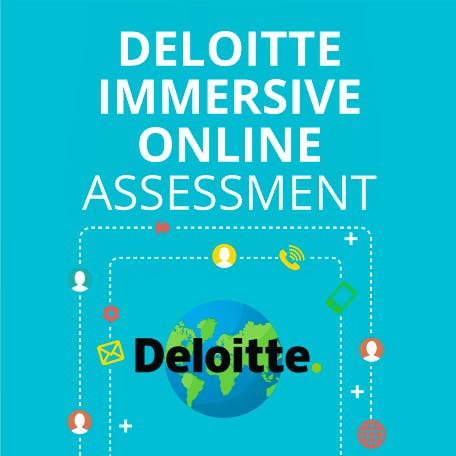A Full Guide to the PWC Assessment 2026
Updated November 3, 2024

- What Is the PwC Assessment Test?
- A List of PwC Tests Available for Practice in 2026
- What Is Included in the PWC Assessment Test?
empty
empty
empty
empty
empty
empty
- Example Questions of the PwC Assessment Test
empty
empty
empty
empty
empty
- How to Prepare for the PwC Assessment Test
- What Happens After the Assessment?
empty
empty
empty
- Frequently Asked Questions
- Final Thoughts

What Is the PwC Assessment Test?
When you apply for a coveted role at PwC, you will be asked to undertake a PwC assessment test as part of the recruitment process.
The PwC test are used to evaluate candidates on measurable skills, abilities, aptitudes and personality traits that are needed for success in the type (and level) of the role that you have applied for.
PwC is one of the Big Four accounting firms globally, and from their headquarters in London, England, they have offices in 157 countries, a presence in 742 locations, and they currently employ nearly 300,000 staff.
With roles available in various departments, from consulting to legal, operations to audit, and tax to technology, competition for advertised jobs is fierce, and the PwC assessments are recognised as being particularly challenging to help narrow down the candidate pool to those applicants who really have what it takes to be successful.
In fact, less than 50% of candidates will advance past the screening tests as the benchmark for a passing mark is very high.
When you are invited to complete an online assessment, there are several key aptitudes and skills that will be assessed.
The ones that you are evaluated on will depend on the role you have applied for, but they can include the following:
- Ability Tests: verbal, numerical, logical reasoning
- Case Studies
- In-Tray Exercises
- Personality Questionnaires
- Career Unlocked (Gamified Assessment)
- Situational Judgement
Tests are completed under timed conditions, and you might be asked to complete them in your own time (at home) or during an assessment day (in person).
A List of PwC Tests Available for Practice in 2026
What Is Included in the PWC Assessment Test?
Part of the reason that PwC assessments are so tricky is that PwC has a wide range of assessments that they use to evaluate what a candidate is capable of – so preparation can be a bit more complicated.
PwC need to be effective in filtering applicants because of the high volume of applicants – working for a Big Four firm is a great addition to any CV, and as a global professional services firm, there are many benefits offered to employees.
These include excellent salaries and benefits but also a great investment in personal and professional development, with a real focus on leadership.
To get to the next stage of the recruitment process, you will need to pass one (or more) of the online assessments at PwC – and the more you know about the tests, the better you will perform.
Ability Tests
The ability or aptitude tests that PwC uses are SHL-style assessments, and they are multiple-choice timed tests.
Numerical Reasoning
Used in assessing candidates for roles that use numerical data to help make decisions, the numerical reasoning assessment consists of questions relating to numerical data that is provided in the form of tables, graphs or charts.
To find the right answer from the multiple-choice options, the candidate needs to use this data and perform some basic mathematical operations (such as multiplication or addition).
Verbal Reasoning
The verbal reasoning assessment is used in roles where the candidate will be required to make decisions based on written (verbal) information.
To be successful, the candidate will need to quickly read and understand the information provided in a passage of text and then use that information to decide whether the statement that follows is:
- True
- False
- Too little information to say
Logical Reasoning
The logical reasoning assessment is based on abstract information and is used in the recruitment process for roles where logical decisions need to be made using unfamiliar information.
To answer these questions correctly, the candidate needs to be able to look at a series of shapes or images and discern the pattern that is being used to make them into some sort of sequence.
They then need to apply this pattern to the multiple-choice options available to find the next logical shape or image for the sequence.
Case Studies
Some of the roles offered at PwC will have a heavy focus on consulting, and the best way for a candidate to demonstrate these skills is to complete a case study assessment.
These usually include a brief with various information about a fictional company, and you will need to gather relevant data to make recommendations based on your industry knowledge and analytical ability.
In-tray Exercise
For roles where a high level of organisation and coordination are needed, the in-tray exercise will be used to assess candidates on their ability to plan effectively and deal with multiple tasks in a logical and realistic way.
There will be several messages, emails, calls and other tasks that need to be completed, and the candidate needs to demonstrate how they would ensure that the most important tasks were taken care of without ignoring the others.
Personality Questionnaires
In a personality test, you will be given some statements about work behaviour and different personality traits, and you will need to rate them on how well you think they describe you.
Personality assessments are used to evaluate things like how you behave at work and how you respond when under pressure.
They also check for things like value alignment and culture fit.
Career Unlocked
This is a gamified assessment that has been created by Arctic Shores for PwC, and it offers a series of eleven different mini-games that are used to evaluate more than 3,000 data points on the way that you play.
In the assessment, which is optimised for completion on your smartphone but can be taken on a PC, you will be tested on things like memory, risk aversion, reaction time, reasoning and behaviours – but for you, all you will be doing is completing short, fun games using intuitive and simple controls.
The games create a feedback report that the recruiters can use to see how you performed in five areas:
- Cognition
- Drive
- Personal style
- Interpersonal style
- Thinking style
Situational Judgement
In the situational judgement assessment, you will be provided with a fictional yet realistic work scenario that describes a problem or an issue.
There will be several courses of action provided that you can choose as the best way to deal with the problem.
In the PwC situational judgement test, there will be one quite obvious wrong answer, but the others will seem to be good responses – so your choice will demonstrate how you behave at work and how you communicate and deal with conflict.
Example Questions of the PwC Assessment Test
PwC Numerical Reasoning Test
In the below table, the cash flow of a small market trader over the course of a week is provided.
What is the total profit made?
| Day | Income | Expenses |
|---|---|---|
| Monday | £36.20 | £10.00 |
| Tuesday | £52.90 | £10.00 |
| Wednesday | £23.80 | £26.00 |
| Thursday | £32.40 | £10.00 |
| Friday | £97.20 | £10.00 |
a) £156.70
b) £176.50
c) £200.00
d) -£56.00
Horses are social animals, and when living wild, they will roam in herds across vast spaces to find the best grazing and visit watering holes. What this means for domestic horses is that their basic natures need to be considered when it comes to living arrangements.
Most horses will prefer to live out, not in stables, for most of the year, in larger paddocks that allow for movement and natural grazing behaviour, but it should always be considered on a case-by-case basis, depending on the weather.
Horses should always live in stables
a) True
b) False
c) Not enough information to say

If you need to prepare for a number of different employment tests and want to outsmart the competition, choose a Premium Membership from JobTestPrep.
You will get access to three PrepPacks of your choice, from a database that covers all the major test providers and employers and tailored profession packs.
Which image completes the pattern below?

Rate the below statement as you think it describes you.
I prefer to complete tasks by myself
a) Strongly agree
b) Agree
c) Neither agree nor disagree
d) Disagree
e) Strongly disagree
You have come into the office for the first time after your holiday, and you find that your colleagues have all been given new ergonomic office chairs. You have not got one; your chair is the only one that is still the same as it was before you left for your holiday.
What should you do to deal with this situation?
a) Complain directly to HR that you have been marginalised because you have not received a chair like your colleagues
b) Start gossiping with your colleagues about why you are not allowed to have a chair
c) Speak to your manager to ask if you are getting a chair
d) Refuse to work until you get your chair
e) Just get on with your work and try not to upset anyone
How to Prepare for the PwC Assessment Test
There are several ways that candidates can prepare for the PwC assessment test.
Here are some of the best suggestions for them.
Step 1. Understand PwC Questions
Guides like this one will help you understand the type of questions that will be asked on your PwC assessment, which will help you to prepare better.
Once you know the type of assessment and the content of the questions, you can review the basic principles of maths and your reading skills, take relevant PwC practice tests, and revise any areas of weakness more thoroughly.
Step 2. Revise Basic Principles
It is likely that as part of your PwC assessment, you will be evaluated on your mathematical knowledge and ability, specifically in applying it to solve problems.
While the level of mathematical skill that is needed to complete the assessment is not degree-level, you will be required to have a thorough understanding of school-level maths principles, from operations through to percentages, ratios, fractions and decimals.
It is also a good idea to ensure that your knowledge of the formal language is good, too – you can use business journals, online news stories, and other resources to boost your understanding of business words whilst also improving your commercial knowledge.
Step 3. Practice PwC Questions
Relevant practice tests are an excellent resource when you are facing any type of pre-employment assessment, and the same is true with PwC.
Practice tests will help you to get familiar with the structure and layout of the assessments themselves, as well as things like time limits and the content of the questions themselves.
The ability and aptitude tests are by SHL, which means that you can find SHL-style practice tests on the SHL site as well as in places like JobTestPrep.
JobTestPrep is an excellent resource with both free and premium content aimed at helping you perform your best, no matter which PwC assessments you are facing.
Step 4. Practice Timings
Timing is an important part of online assessments, and when you are taking a test, the time can pass surprisingly quickly.
When you are taking practice tests, make sure that you are timing them so that you get used to answering the questions efficiently.
Taking too long to answer one question might not give you enough time to be able to answer easier questions later in the assessment, and you could miss out on vital marks.
Step 5. Wellbeing
Your brain will work best when it is fuelled properly, which means that you need to take care of your well-being to give your best in the PwC assessment.
Ensure that you get enough sleep – between 6 to 8 hours a night is optimal. Sleep deprivation has been clinically demonstrated to have a negative effect on cognitive ability.
Nutrition and hydration are also important.
Not only will you be distracted if your stomach is rumbling because you haven’t eaten before the test, but it has been proven that eating a healthy, balanced diet has a profoundly positive effect on memory and cognition, and drinking plenty is also important.
Step 6. Test Equipment
Online PwC assessments need to be completed using technology – so you want to be sure that yours is up to scratch and working properly.
For most of the assessments, you will need to use a laptop or a PC with an up-to-date operating system and browser.
You will also need fast and reliable access to the internet, and you should also make sure that audio and visual connections are working properly too.
For the Career Unlocked game, a decent smartphone is preferable as the game works best via a mobile app.
What Happens After the Assessment?
Following the assessments, and if you pass them, of course, the next stage in the process will be the interviews.
There are several different types of interviews offered at PwC, and you might need to complete more than one to progress.
Before the interview, make sure that you have some thoughtful questions to ask and that you are prepared to talk about PwC as a business, the wider industry and any notable news events that are relevant too.
Telephone Interview
The questions asked in the telephone interview will be about your soft skills and behaviour at work, and you will need to provide examples from previous experience (either in a work or school setting) where you have demonstrated the skills that they are looking for in the role.
Technical Interview
This type of interview is a chance for you to demonstrate the experience and knowledge you have in the skills that are needed for the role.
You will usually have a technical interview if you have applied for a technical role, such as programming or a consultant.
You will need to show that you have excellent commercial knowledge and industry expertise.
Face-to-Face Interview
In-person interviews can combine the aspects of both behavioural questions and the technical interview.
Frequently Asked Questions
The PwC assessment test is a battery of assessments that are used to evaluate candidates in different ways as part of the recruitment process.
Different assessments are used for different roles, and they cover aptitudes, abilities, soft skills, personality and work behaviour to see which people are most suited to the job that they have applied for.
The PwC assessment test is notoriously hard to pass – less than 50% of candidates are capable of achieving the scores needed to progress to the next stage. The application process is thorough because there are always considerably more candidates than available roles.
The best way to prepare for the PwC online test is to practice. As soon as you know the type of test that you will be taking, you can find practice tests and revision materials for it at sites like SHLDirect and JobTestPrep, which can help you get familiar with what you will need to know so that you can perform at your best.
Questions on the PwC assessment test can cover the following:
To pass the PwC assessment test, you need to revise the basic principles covered in the assessment, understand what skills and competencies you need to demonstrate for the role, and you need to practice.
Familiarity with the structure and typical content of the questions will make it easier for you to focus on answering the real test questions correctly because you won’t be going in blind.
The scoring for the PwC assessment test depends on the type of test, the role, and the seniority of the role.
Different tests have different benchmarks, but with a competitive recruitment process, you can safely assume that the only way to progress to the next stage is to score as highly as possible.
You can get samples for the PwC assessment test at JobTestPrep, which is an excellent resource for preparation because there are also full guides to the different tests available.
They also have full-length practice tests and other revision material to help you perform at your best.
The purpose of the PwC assessment test is to evaluate candidates on the various aptitudes, skills, traits and abilities that they need to complete the role successfully.
Each test is administered with particular reasons in mind.
Your recruitment contact will let you know what to expect after you have completed the PwC assessment test, but you can expect feedback either verbally or by means of a written report.
The PwC assessment tests are mostly timed, in particular, the ability and aptitude tests.
The personality questionnaire and the situational judgement tests tend not to have a time limit; however, they should be completed quickly in any case so that you give a good demonstration of your ability to work well under pressure.
The results of your PwC assessments are kept on file for 12 months if you are unsuccessful, which means that they can be used as part of your assessment for another role if you reapply, but you can take the tests again if you elect to do so.
You won’t be able to retake the tests as part of the same application process; failure will result in your application being terminated.
You can get a complete guide for the PwC assessment test at JobTestPrep, which covers the different types of test, as well as other parts of the recruitment process, which makes it an excellent resource for you to use when you are working towards a new role.
Final Thoughts
PwC is one of the world’s biggest and most prestigious firms, and this means that many people want to work for them.
There are many more candidates applying for only a small number of roles, which means that the recruitment process is designed to filter through applicants based on their abilities and competencies so that only the very best are given a chance.
If you want to join PwC, you will have to demonstrate that you have what it takes to ace the challenging PwC online assessments, which means that you need to prepare and practice, but the salary, benefits and future progression available will be worth it in the end.












